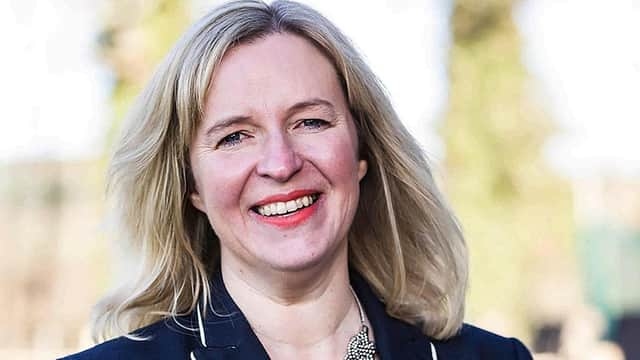Agri-tourism pays off for businesses ready to diversify


And the majority of those offering on-farm accommodation, direct-to-consumer foods sales, farm experiences, catering and function facilities adapted their businesses to continue providing services to the public during some of the restricted periods.
A new air of professionalism was also injected into the sector and some of the changes noted through the industry’s monitor farm project included investing in or drawing up plans for new facilities, introducing new and innovative services, taking on additional staff to free up management time for the farm owners, developing brands and investing in a digital presence.
Advertisement
Hide AdAdvertisement
Hide AdFacilitator of the monitor farm project and agri-tourism entrepreneur, Angus farmer, Caroline Millar, said that the last 12 months had also seen Scottish Agri-tourism achieve wider recognition as an important force in the rural sector, gaining a mention in the political manifestos of both the SNP and the Greens.
“And this commitment to the sector means we are now looking for a proper growth plan and strategy in the first 100 days of the new government.”
She also revealed that Go-Rural, the consumer facing website for the sector was undergoing a £90,000 investment to offer a facility for selling farm stays and experiences and farm food direct,
“And this digital expansion is making a big difference – we hope to secure a million pounds-worth of sales through the site within the first 18 months.” She added that while this might sound ambitious, the equivalent site in Austria handled over €30 million a year.
Julia Latto of Scottish Enterprise congratulated those involved in the monitor farm project on their ability to be agile to market trends which had helped many businesses weather the Covid storm, highlighting the focus on strategic direction and business restructuring which also had taken place.
Jo McNicol who, along with husband Stuart, runs the Drift Coffeehouse on their Castleton farm in East Lothian, said that while the early years of the business had seen the family trying to do everything, the decision to take on a manager this year had led to significant improvements, allowing the family to focus on the strategic development of the business.
“Taking on a manager and employing chefs and bakers has allowed me to take my head out of the oven and freed up time to do other jobs - if we hadn’t had a manager then we definitely wouldn’t have been able to launch our new website.”
The business had also innovated to continue trading during Covid restrictions, with a pivotal grant helping fund the conversion of a horse trailer and the creation of sheltered outdoor seating which had allowed branded take-aways to be sold when the main café was closed.
“Even simple changes like baking muffins rather than slices of cakes and adding sausage rolls to the menu to cater for the takeaway side has yielded benefits.”
Comments
Want to join the conversation? Please or to comment on this article.